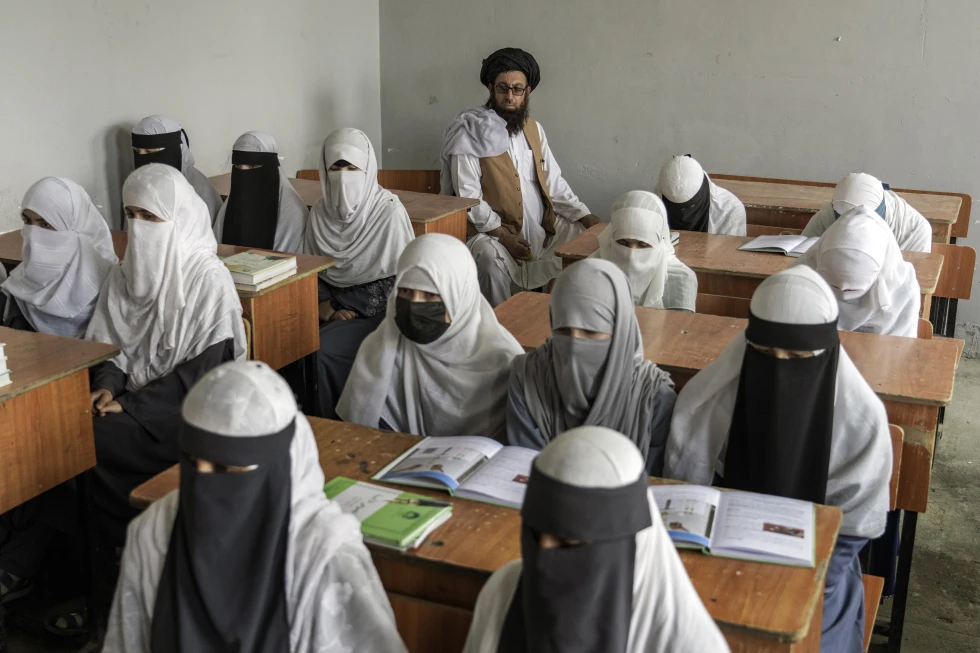Tears as Afghan Schoolgirls Finish Sixth Grade Under Taliban Rule

Bahara Rustam, a 13-year-old student from Bibi Razia School in Kabul, completed her last class on December 11, fully aware that it marked the end of her education.
In September 2021, just a month after the withdrawal of U.S. and NATO troops from Afghanistan, the Taliban declared a ban on girls pursuing education beyond the sixth grade. This restriction was further expanded to include universities in December 2022, despite global criticism and warnings about the implications for the Taliban’s legitimacy.
UN special envoy Roza Otunbayeva recently voiced concerns that a generation of Afghan girls is progressively falling behind each passing day. Although an official from the Education Ministry mentioned that girls are permitted to study in religious schools (madrassas), traditionally exclusive to boys, the presence of a standardized curriculum for modern subjects remains unclear.
For Bahara, clinging to her education means studying at home, as graduating from the sixth grade should lead to entering the seventh grade.
Meanwhile, in another part of Kabul, 13-year-old Setayesh Sahibzada expresses sadness over the uncertain future that awaits her. Deprived of the opportunity to attend school, she feels incapable of pursuing her dreams, particularly her aspiration to become a teacher.
Analyst Muhammad Saleem Paigir emphasizes the disastrous consequences of excluding women and girls from education, highlighting the crucial link between literacy and freedom. The Taliban’s stringent restrictions extend beyond education, with women barred from numerous public spaces and most jobs, effectively confining them to their homes. This situation raises significant concerns about the broader impact on Afghanistan’s development and prosperity.
Repurposed article originally published in AP News








